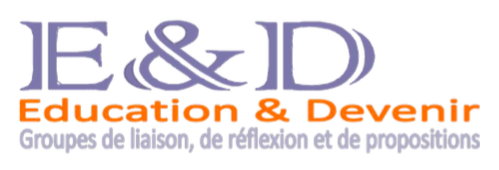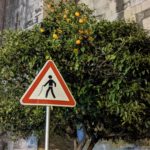Who are we ?
The association Education & Devenir (E&D), liaison, reflection and proposal groups is independent of any political party and any trade union. It brings together teachers, chief education officer, supervisory staff, researchers, and all those who want to commit themselves to a school that contributes to social justice, national cohesion, self-fulfilment and openness to the world.
Founded in 1984 by Maurice Vergnaud, Inspector General of National Education and then Director of Colleges at the Ministry, it defends the idea of institutional autonomy which, within a framework set and guaranteed by the State, brings together local partners, creates the conditions for equals rights for each child, each young person, to reach his or her own level of excellence.
Generally speaking and since its creation, the members of the E&D association are actors in the field, identified in their respective academies as involved staff, invested in reflection and innovation as well as in initial and continuing training.
At the same time as they strive to transmit knowledge and expertise, they ensure that they lead young people to the exercise of liberty and responsability ; they help them to forge a moral and critical sense, to exercise their reason, to develop their creativity, to become the Human and the Citizen of tomorrow!
At the national level, E&D is consulted or involved in all major reforms that integrate some of its proposals (school projects, personalised support, pedagogical advice, etc.), either in its own name or within the CAPE (collective of the School’s partner associations).
The association organizes « Autumn Days » for its members, but also national days on the same theme, bringing together researchers and education actors for a time of analysis and debate concerning education’s actuallity. In March 2018, in Lille on « School and the rights of the child »; in March 2019, in Avignon on « The public education service, unity and diversitéy ». During the year 2020 in Lille and then in Lyon, around the same theme of « The School of Social Sorting, understanding the mechanisms of social sorting, identifying the issues to better overcome them ». Since 1984, we have published several « notebooks » per year. Recently, « Deontology and teaching… « , » the reform of the college » and » the training of teachers « ..
In the academies, each team proposes working meetings, conferences-debates, meetings with partners from the world of education and can participate in training activities for INSPE, institutions…
Our values E&D Charter today
Today, in an increasingly complex context, trust cannot be decreed but remains to be built. We affirm that it is through greater autonomy and responsability of the actors that the school can respond to the challenges assigned to it by society. Autonomy of institutions, autonomy of districts and education basins are not a threat to national education but, on the contrary, give it more relevance and more justice, efficacity and creativity.
- Within the framework of national objectives, it is through effective school autonomy, based on democratic, participatory and representative functioning, that the actors of the education system can implement and succeed in the necessary reforms. It is thanks to the diversification of approaches and practices that these reforms will be able to really take care of each pupil, of his/her individual and collective future, by providing him/her with the necessary learning and support for his/her progress.
- It is through collective reflection, as close as possible to the reality of each school, that the meaning of teaching content and learning methods can be made explicit and find their relevance, that students’ skills can be solidly constructed and evaluated, and that the necessary support can be developed and personalised.
- It is through networking, sharing and the resulting projects that schools, colleges and high schools as well as higher education establishments can build a real pedagogical continuity from kindergarten to university, enabling all paths to success, with a concern for academic, social and territorial justice.
- It is through a real anchorage in the territory that each school, each establishment can give meaning to its own project, work in confidence with the parents, collaborate with the territorial authorities and guardians, the local associative and economic fabric, in order to reach efficacity and the coherence of a territorial educational project and a real shared education.
- It is through a demanding initial and continuing training, combining field experience, reflective analysis, theoretical input and academic research that all personnal, actors in education, can find ways to adapt and strengthen their professionnality assert themselves as committed professionals, able to respond to the needs of young people and the society.
- It is through an ambitious cultural policy that is plural and open to the world, it is through the pedagogical contribution of digital technology and through information education that each school, each educational establishment can reach out to the universal, contribute to overcoming communalist retreats and segregationist tendencies.
- It is through an affirmed, defended but also explained and dialogued laicity that we can awaken the younger generations to respect for others, to the freedom of belief and expression and to the desire to live together in adherence to the values of the Republic.
These principles are not pious hopes for the School of tomorrow, they are already implemented by many Education & Devenir’s activists, convinced of their power to act, here and now.






Comments by jlcazaillon